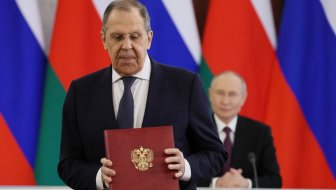The Czech Republic will not impose any restrictions on employment of Croatians upon their country's admission to the European Union on 1 July, Czech Prime Minister Petr Necas was quoted by the local CTK news agency as saying on Thursday.
"I want to emphasise that the government is sticking to its policy of unambiguously promoting free movement of labour. The Czech Republic has never imposed restrictions on EU newcomers, nor do we intend to impose any on Croatia," Necas said after his cabinet meeting.
He recalled that restrictions imposed by western labour markets upon the Czech Republic's entry into the EU in 2004 proved to be unnecessary.
The Treaty of Accession between Croatia and the EU enables EU member-states to have restrictions on employment of Croatian workers in the first two years upon the country's accession and also, following the review of the situation, in the next three years plus two more years (under a 2+3+2 formula).
Croatia will become the EU's 28th member on July 1.
It can opt for reciprocal measures for EU members that decide to use labour restrictions. Similar rules were in place in the previous two waves of enlargement in 2004 and 2007.
This January, Germany announced the possibility of limiting the employment of Croatians, with highly educated researchers and seasonal workers being excluded from the ban.
The Netherlands announced the same measures in March.
A majority of old EU members, except Sweden, restricted the employment of workers coming from newcomers in 2004 and 2007.

































